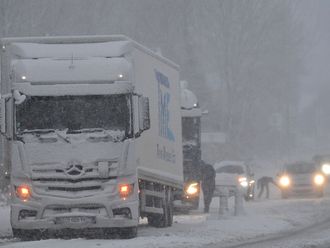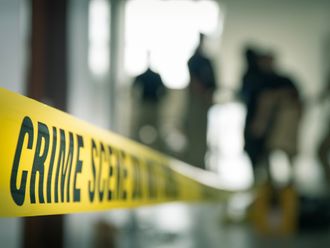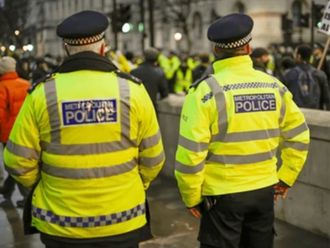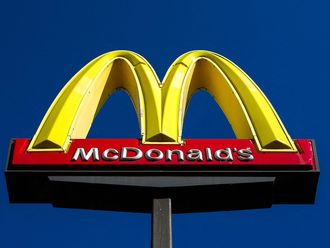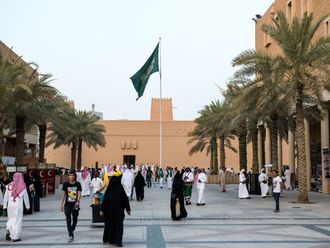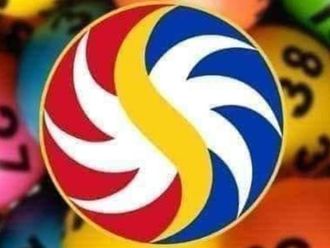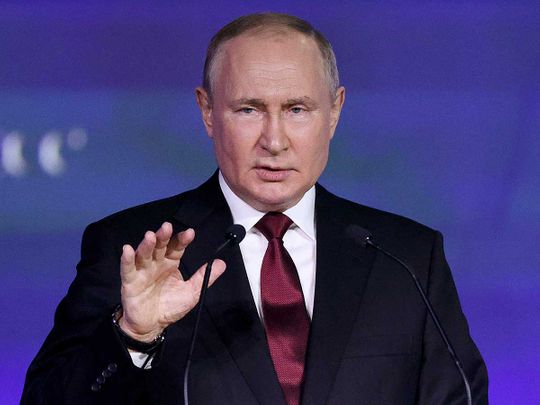
Moscow: President Vladimir Putin on Tuesday delivered a warning to the West over Ukraine by suspending a landmark nuclear arms control treaty, announcing that new strategic systems had been put on combat duty, and threatening to resume nuclear tests.
Nearly a year after ordering an attack that has triggered the biggest confrontation with the West in six decades, Putin said Russia would achieve its aims and accused the West of trying to destroy it.
"The elites of the West do not hide their purpose. But they also cannot fail to realise that it is impossible to defeat Russia on the battlefield," he told his country's political and military elite.
Alleging that the United States was turning the war into a global conflict, Putin said Russia was suspending participation in the New START treaty, its last major arms control treaty with Washington.
Signed by then-U.S. president Barack Obama and his Russian counterpart Dmitry Medvedev in 2010, the treaty caps the number of strategic nuclear warheads that the countries can deploy.
Due to expire in 2026, it allows each country to physically check the other's nuclear arsenal, although tensions over Ukraine had already brought inspections to a halt.
US Secretary of State Antony Blinken called Putin's move "deeply unfortunate and irresponsible". NATO Secretary-General Jens Stoltenberg said it made the world a more dangerous place, and urged Putin to reconsider.
The Russian leader said that some in Washington were considering breaking a moratorium on nuclear testing.
"... if the United States conducts tests, then we will.
No one should have dangerous illusions that global strategic parity can be destroyed," Putin said.
"A week ago, I signed a decree on putting new ground-based strategic systems on combat duty." It was not immediately clear which systems he meant.
Putin said Ukraine had sought to strike a facility deep inside Russia where it keeps nuclear bombers, a reference to the Engels air base.
Russia and the United States together hold 90% of the world's nuclear warheads.
The New START Treaty limited each side to 1,550 warheads on deployed missile launchers and heavy bombers. Both sides met the central limits by 2018.
It came into force in 2011 and was extended in 2021 for five more years after US President Joe Biden took office, and allows both US and Russian inspectors to ensure that both sides are complying with the treaty.
Under the agreement, Moscow and Washington are committed to deploying no more than 1,550 strategic nuclear warheads and a maximum of 700 long-range missiles and bombers.
Each side can conduct up to 18 inspections of strategic nuclear weapons sites every year to ensure the other has not breached the treaty's limits.
However, inspections under the agreement were put on hold in March 2020 because of the COVID-19 pandemic.
Talks between Moscow and Washington on resuming inspections were due to take place last November in Egypt, but Russia postponed them and neither side has set a new date.
Putin said that Russia wanted to solve the conflict in Ukraine peacefully but that Western countries had prepared a "different scenario" behind its back.
"We were doing everything possible to solve this problem peacefully, negotiating a peaceful way out of this difficult conflict, but behind our backs a very different scenario was being prepared," Putin told lawmakers from Russia's parliament, while delivering the state-of-the-nation address.
Flanked by four Russian tricolour flags either side, Putin told Russia's political and military elite that Russia would "carefully and consistently resolve the tasks facing us" in Ukraine.
When he spoke about the annexation of four Ukrainian territories last year, he got a standing ovation at the Gostiny Dvor exhibition centre just a few steps from the Kremlin.
He asked the audience, which included lawmakers, soldiers, spy chiefs and state company bosses, to stand to remember those who had lost their lives in the war. He promised a special fund for the families of the victims.
"The people of Ukraine have become the hostage of the Kyiv regime and its Western overlords, who have effectively occupied this country in the political, military and economic sense," Putin said.
"They intend to transform a local conflict into a phase of global confrontation. This is exactly how we understand it all and we will react accordingly, because in this case we are talking about the existence of our country." Defeating Russia, he said, was impossible.
The 70-year-old Kremlin chief said Russia would never yield to Western attempts to divide its society, adding that a majority of Russians supported the war.
Putin also said Moscow was defying the West's attempts to ruin Russia's economy through an unprecedented package of sanctions, saying trillions of dollars were at stake for the West, but Russia's income flows had not dried up.
A message on the All-Russia State Television and Radio Broadcasting Company (VGTRK) website said that "technical works were being carried out" while the Smotrim website was not loading.
Shortly before the speech started, state TV channels had broadcast a segment on the technical preparations that go into broadcasting the speech, saying the live stream would be carried across all major Russian TV channels.
The state-run RIA Novosti news agency said the outage was the result of a distributed denial of service (DDoS) attack.
Here are highlights from his speech, which was delivered to members of both houses of parliament and to military commanders and soldiers and lasted about one hour and 45 minutes.
Difficult time
"I am making this address at a time which we all know is a difficult, watershed moment for our country, a time of cardinal, irreversible changes around the world, the most important historic events that shape the future of our country and our people, when each of us bears a colossal responsibility."
Protecting people of Donbas
"Step by step, carefully and consistently, we will resolve the tasks facing us. Since 2014, the (people of the) Donbas (in eastern Ukraine) had been fighting, defending their right to live on their own land, to speak their native language. They fought and did not give up in the conditions of blockade and constant shelling, undisguised hatred on the part of the Kyiv regime. They believed and expected that Russia would come to their rescue... We patiently tried to negotiate a peaceful way out of this most difficult conflict, but a completely different scenario was being prepared behind our backs."
Hostage of West
"I have already said many times that the people of Ukraine have become the hostage of the Kyiv regime and its Western overlords, who have effectively occupied this country in the political, military and economic sense... Today's Ukrainian regime essentially serves not the national interests but those of third countries."
Existential threat to Russia
"The elites of the West do not hide their purpose... That is, they intend to transform a local conflict into a phase of global confrontation. This is exactly how we understand it all and we will react accordingly, because in this case we are talking about the existence of our country. But they also cannot fail to realise that it is impossible to defeat Russia on the battlefield. Therefore, they are conducting more and more aggressive information attacks against us."
Culture wars
"They distort historical facts, constantly attack our culture, the Russian Orthodox Church, and other traditional religions of our country. Look at what they do with their own peoples: the destruction of the family, cultural and national identity, perversion, and the abuse of children are declared the norm. And priests are forced to bless same-sex marriages... As it became known, the Anglican Church plans to consider the idea of a gender-neutral God... Millions of people in the West understand they are being led to a real spiritual catastrophe.
Impact of sanctions
"They want to make the (Russian) people suffer (with sanctions)... but their calculations did not materialise...
"Those imposing sanctions are punishing themselves. They have caused price hikes, job losses, an energy crisis. And we hear them telling their own people that the Russians are to blame."
Russian resilience
"The Russian economy and management system turned out to be much stronger than the West believed. Thanks to the joint work of the government, parliament, subjects of the Federation and, of course, the business community and labour, we ensured the stability of the economic situation, protected citizens, saved jobs, prevented market shortages, including essential goods, supported the financial system, entrepreneurs who invest in the development of their business, and therefore in the development of the country...
"Thanks to a strong balance of payments, Russia does not need to borrow abroad, bow down, beg for money, and then have a long dialogue about what, how much and under what conditions to give. Domestic banks are operating stably and steadily, and have a solid safety margin...
"According to estimates, already in the second quarter of this year, inflation in Russia will approach the target level of 4%. Given the positive dynamics of this and other macroeconomic parameters, objective conditions are being formed for reducing long-term lending rates in the economy, which means that loans for the real sector should become more accessible...
"We will keep increasing the minimum wage and it will grow faster than inflation and average pay. From the beginning of this year, the minimum wage has been indexed by 6.5%. From Jan.1, 2024, I suggest increasing it by an extra 10%."
Elections
"The rights and freedoms of our citizens are inviolable. They are guaranteed by the constitution and, despite external challenges and threats, we will not retreat from them. In this regard, I want to emphasize that elections of local and regional authorities this year, and the presidential elections in 2024 will be held in strict accordance with the law, taking into account all democratic and constitutional procedures."
National character
"Russia is an open country. And at the same time, it is a unique civilization... It was handed down by our ancestors, and we must preserve it for our descendants and pass it on. We will develop cooperation with friends, with everyone who is ready to work together. We will adopt all the best, but rely primarily on our own potential, on the creative energy of Russian society, on our traditions and values.”


